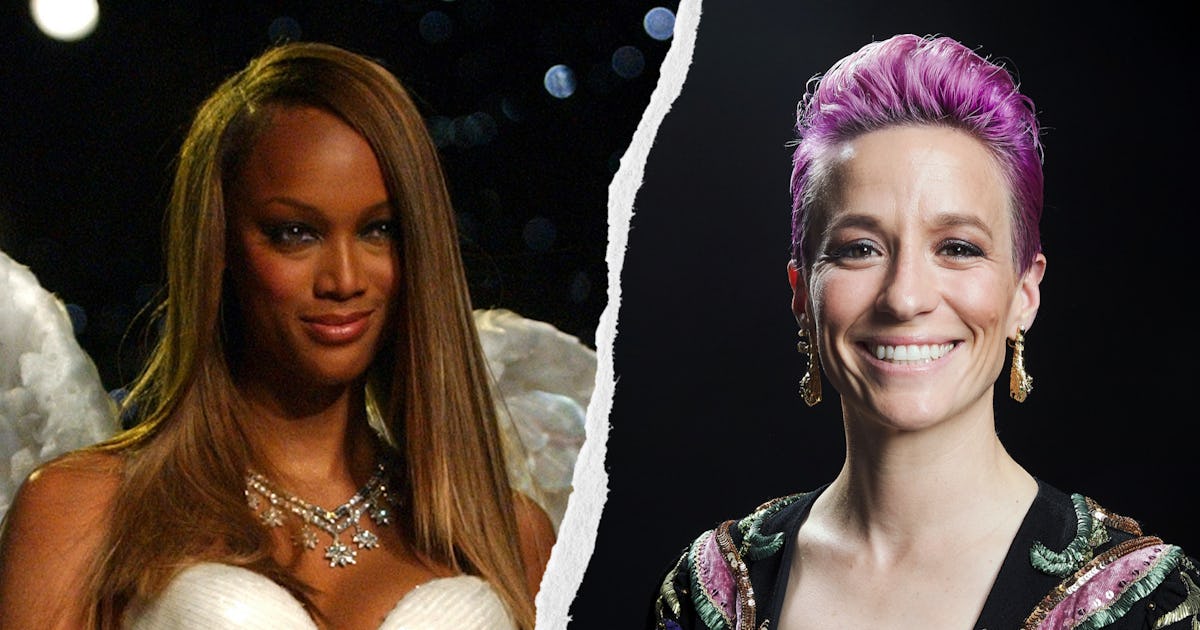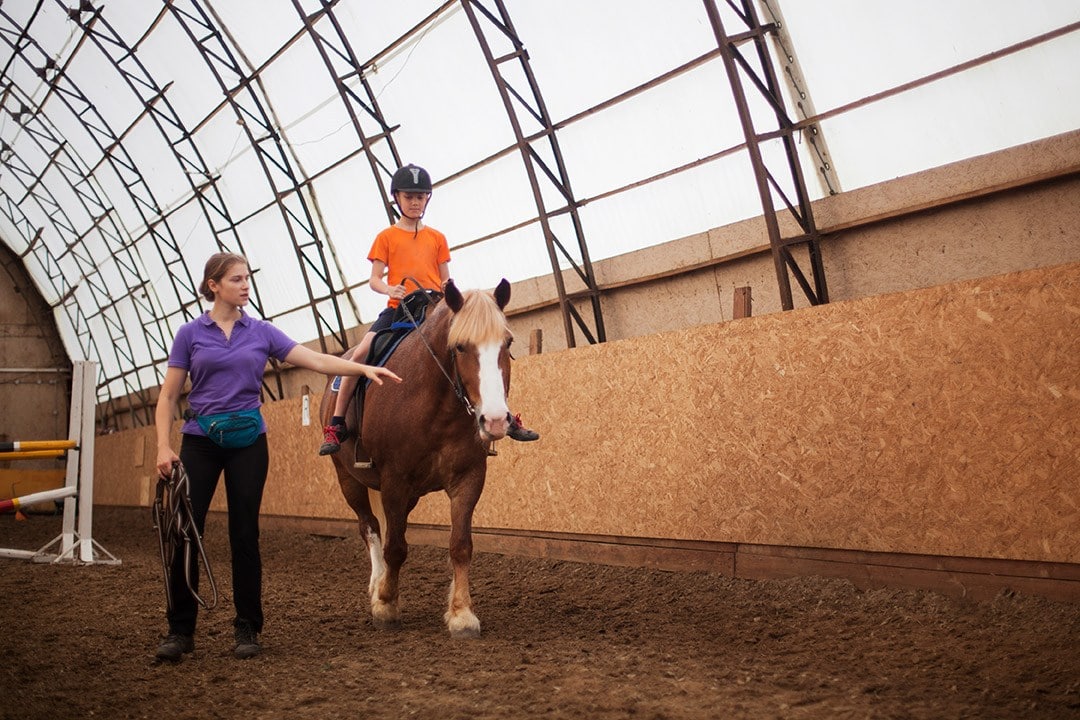

Whether you’re a freshly graduating high school student or someone who just wants to live their passion, you may consider working with horses. If you’ve always had a passion for these incredible creatures, it might surprise you just how many options you have.
When you think of animal care, you might think of a vet or trainer—but there are so many more options out there. If you want to further your education or look for potential freelance or seasonal work, we have some opportunities for you to consider. Let’s explore all of these 14 horse career options.
1. Equine Veterinarian
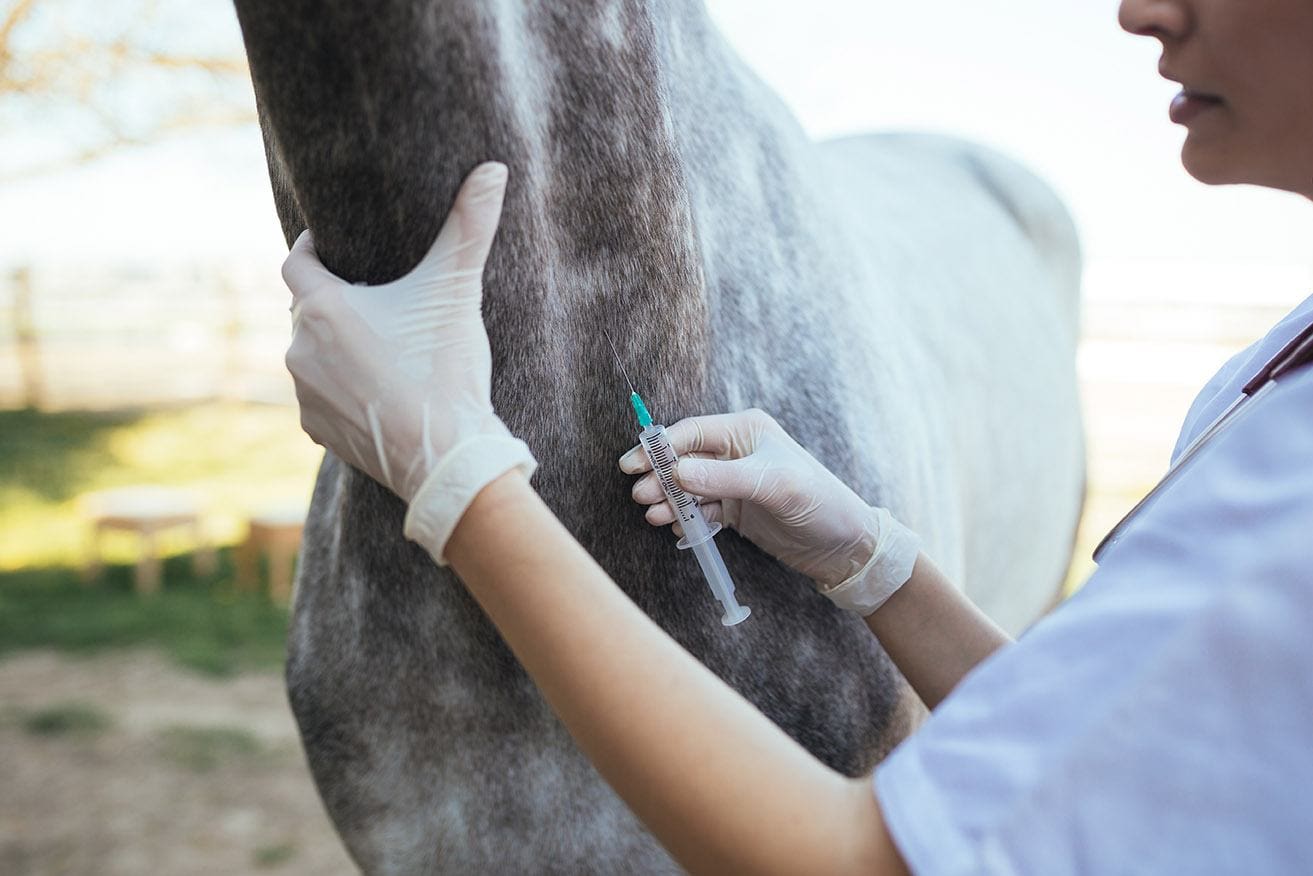
Possibly one of the most obvious career choices for working with horses is becoming a licensed veterinarian. Schooling might be lengthy, but you could work closely with horses daily in practically any area.
As an equine vet, you can expect to:
- Perform general exams
- Administer vaccinations
- Suture wounds
- Prescribe medications and supplements
- Perform surgical procedures
- Diagnose illness or disease
- Create treatment plans
Most veterinarians enter a broad range of studies where they can learn the practices of caring for many species. But the further you go in your education, the more you can take advantage of specialized courses for a particular animal if that’s where your passion lies.
If you want to work with equines, you can fulfill a number of duties for horses in your area. Some equine vets make house calls, others work in facilities. Rather than specializing in only horses, you can treat all livestock if you choose as well.
Compartmentalization, efficiency, and organization are necessary skills for equine vets. You must be able to work calmly and effectively, even in very high-stress situations.
As a veterinarian, you have to maintain certain licenses to stay in practice. You must renew them on a biennial basis, meaning every two years by March 1st with your state’s Medical Licensing Board.
Required Education: Doctor of veterinary medicine degree
Additional Courses: AVMA accreditation
Average Annual Salary: $70,000 to $130,000
2. Equine Veterinary Technician
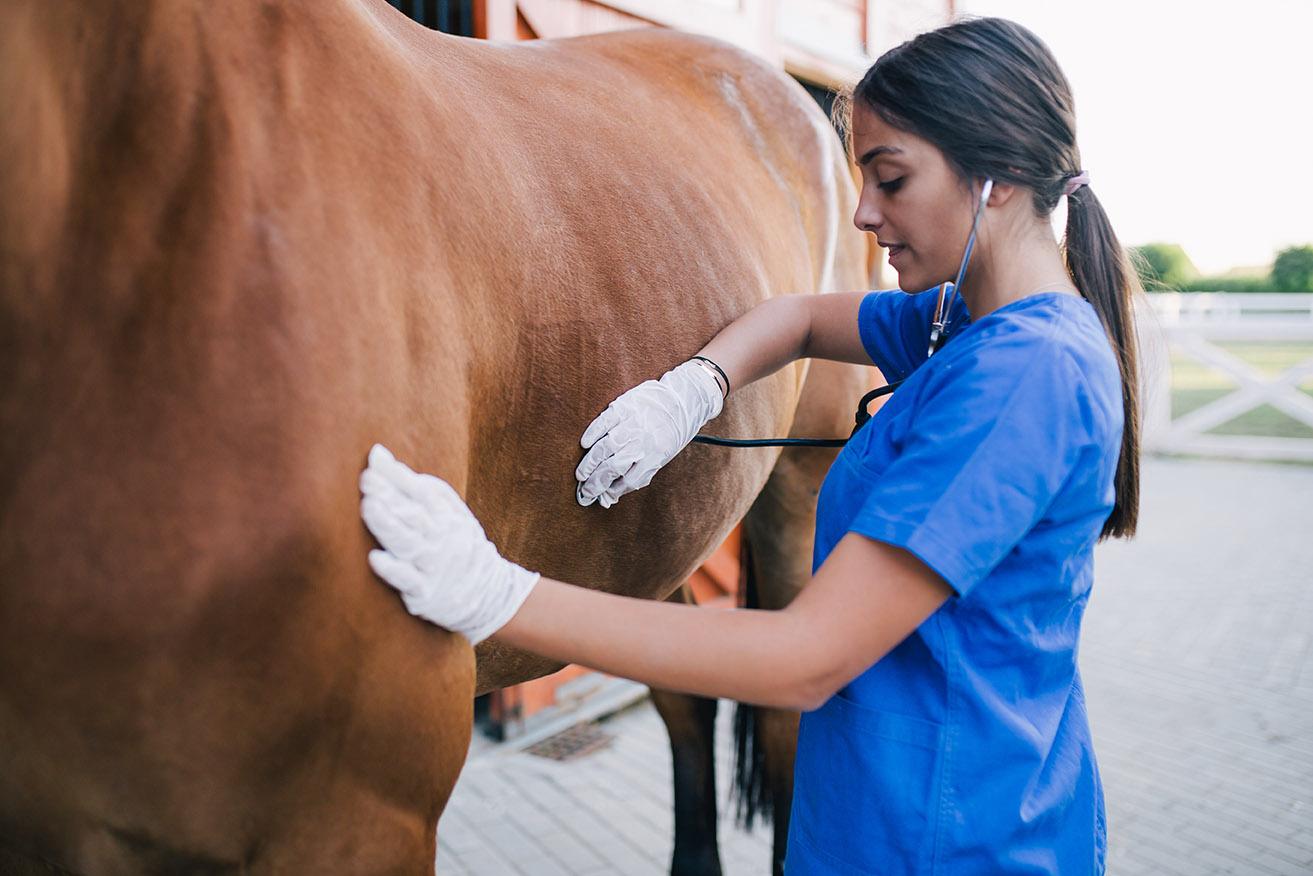
Unlike being a veterinarian, you can become a veterinary technician with the proper schooling and licensing. You still get the firsthand experience without all of the extra schooling and responsibility. Vet techs assess and work directly with their equine patients to assist with a variety of medical needs.
As a veterinary technician who works with horses, you can expect to fulfill these standard duties:
- Check vitals
- Monitor horse health
- Euthanasia
- Nurse and dress wounds
- Assist veterinarians
Basically, you’re the vet’s right-hand man (or woman). You can practice anything from administering treatments to documenting patient files and providing surgical assistance. You interact daily with patients and their humans, ensuring an overall positive medical experience.
You can form relationships with horses trusted under your care. Repeating clients will become favorites. But keep in mind that you must have thick skin. As a vet tech, you will see the ugly side of the job, too. Horses will pass away—through injury, illness, or euthanasia.
So, if you think you have the compartmentalization skills to handle all aspects of the job, it can be advantageous. School lasts approximately 2 years, at which point you can take an AVMA-certification to get your official license.
Required Education: Associate or technical program
Additional Courses: AVMA certification
Average Annual Salary: $24,000 to 48,000
3. Equine Rehabilitation Therapist
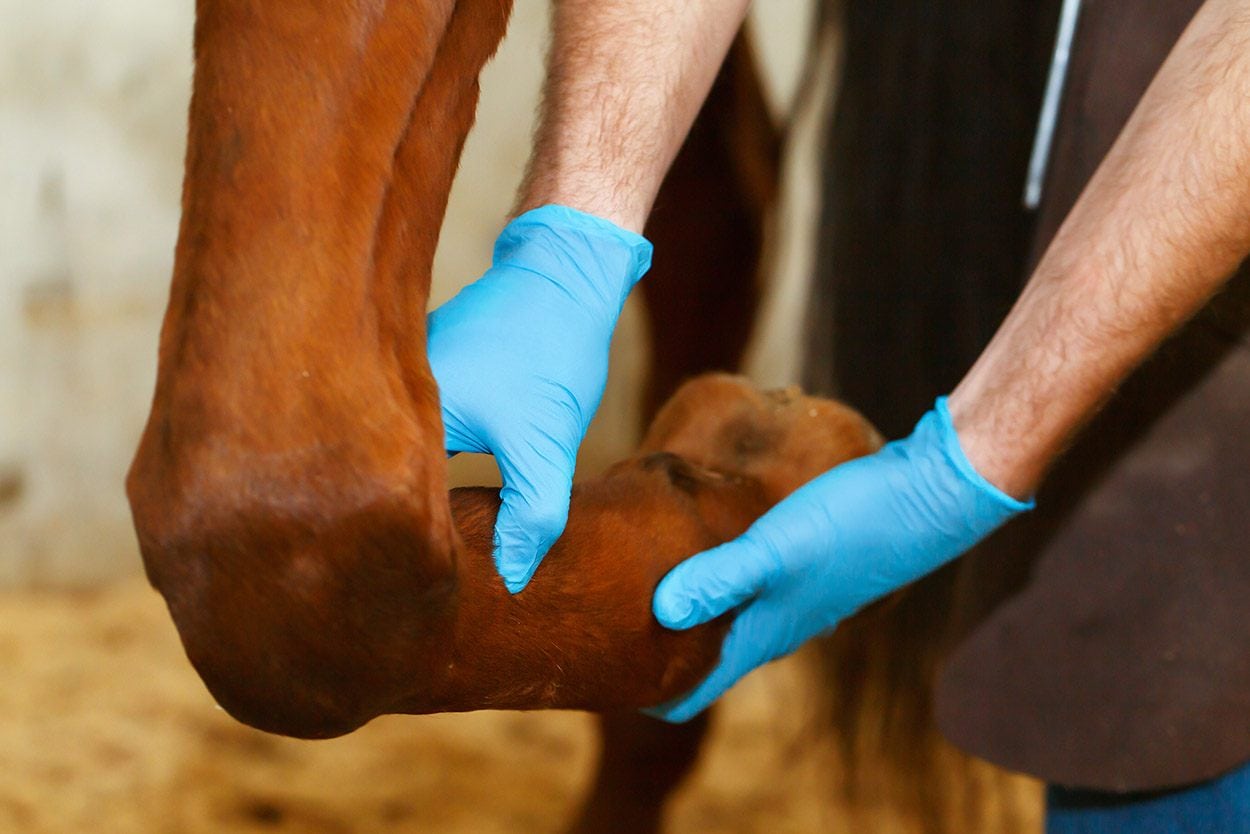
Because horses are so active, it’s no wonder their bodies can break down. Equine Behavioral Therapists assess physical damages in horses. Once you have established a diagnosis, you can create a plan of care to increase muscle function and mobility.
As an equine rehabilitation therapist, you can expect to perform duties like:
- Preform physical therapies
- Enhance equine performance and mobility
- Soothe and manage chronic pain
- Create a therapy plan based on diagnoses
Equine rehabilitation therapists nurse horses back to health and keep them feeling their best. They work with joints, muscles, and soft tissues to promote healthy blood flow and reduce pain levels that affect performance.
No matter where a horse is suffering physically, you can work with different techniques to enhance the quality of life. Many patients will be recurring and require ongoing care. You must also make informed recommendations to the owner, warning of any restrictions or limitations.
The nature of this job calls for a calm, even-keeled person who has a soothing demeanor. Since you are working with horses who might have high pain or strong sensitivities, it’s important to have the personality to calm them. Trust is paramount between the patient and therapist for best success.
There are a few degree avenues to become an equine rehabilitation therapist, so you can choose the path tailored to reach your career goals.
Required Education: Bachelor’s degree in veterinary technology, massage therapy, equine science, or physical therapy
Additional Courses: AVMA accreditation
Average Annual Salary: $80,000 to $100,000
4. Horse Trainer
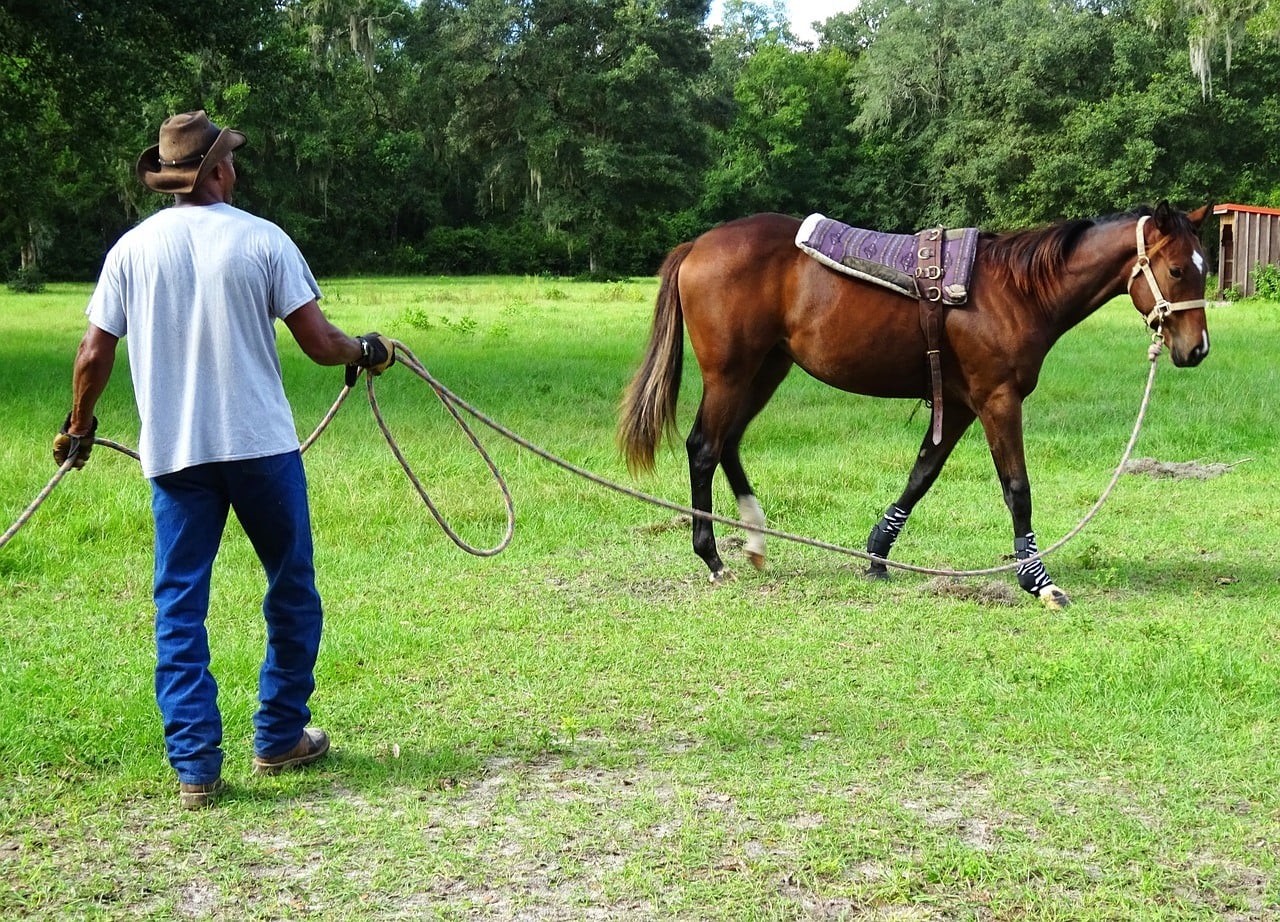
Horses need to learn the ropes to become excellent in their field. Trainers can work with individual personalities to mold their behavior to match those criteria. Whether the horse needs prepping for a show, basic riding, or work purposes, you can ensure success for clients.
As a horse trainer, you can expect to:
- Calmly work to build trust with each horse
- Feed, water, and groom horses daily
- Perform various exercises
- Teach commands
- Adapt horses to saddles and equipment
- Carefully document behavioral problems and dispositions
- Ready horses for riding, show, or work
Some horse trainers work privately, while others work for public stables. This lends to your preference and working style, so ultimately, it is up to you. Many who work for public stables eventually branch out on their own.
You can tailor the job to suit your schedule. So, if you prefer to travel, board, or work publicly with horses, you can offer services based on what works best for you. There is a lot of freedom in the job, especially in terms of self-employment.
As a horse trainer, you must exhibit empathy, discipline, and consistency. You will work with horses of many personalities, and being prepared for anything is crucial. You also can’t take things so personally. Some horses will train easier than others, and you must not be discouraged by it.
You should have some type of educational degree to harness your skillset. However, some horse trainers might not have formal training.
Required Education: Associates degree in equine studies or equine science
Additional Courses: Apprenticeships
Average Annual Salary: $28,000 to $45,000
5. Riding Instructor
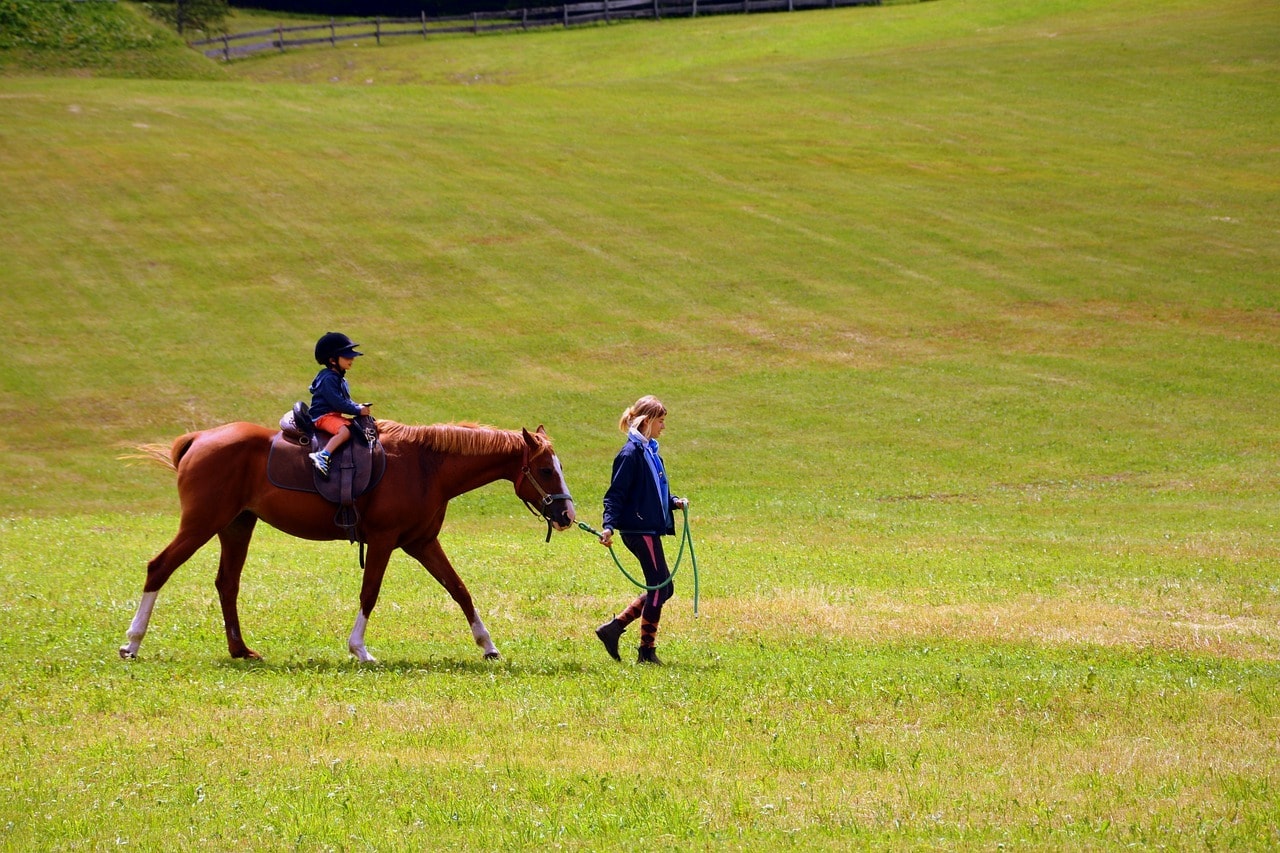
If you have a strong love for horses and would love to educate others, becoming a riding instructor might be a very fitting job for you. Riding instructors work with horses to match them with potential riders. You can teach riders basic skills and advanced skills to better their experience on the saddle.
As a riding instructor, you can expect to fulfill duties like:
- Teach people basic riding techniques
- Take on group or individual lessons
- Clean hooves to ensure steady gait
- Provide basic care for horses
Becoming a riding instructor takes an extreme passion for horses and combines it with human teaching. Riding horses should already be well-trained and obedient so they can be temperamentally sound for inexperienced riders.
Teaching human beings about horse behavior will help your clients interact comfortably with the equines. You provide a valuable service to teach various riding styles, such as bareback, European, and Western.
Riding Instructors should be patient with people and animals alike. You have to do many repetitive tasks and teach the same methods regularly, so you can’t be a person who bores easily. Instructors should always possess kindness, empathy, and endurance.
You can work as a riding instructor in various settings, including on ranches, at racetracks, facilities. Most places require certification to instruct.
Required Education: Certification
Additional Courses: Many places expect 1 year of previous teaching experience
Average Annual Salary: $24,000 to $48,000
6. Equine Nutritionist
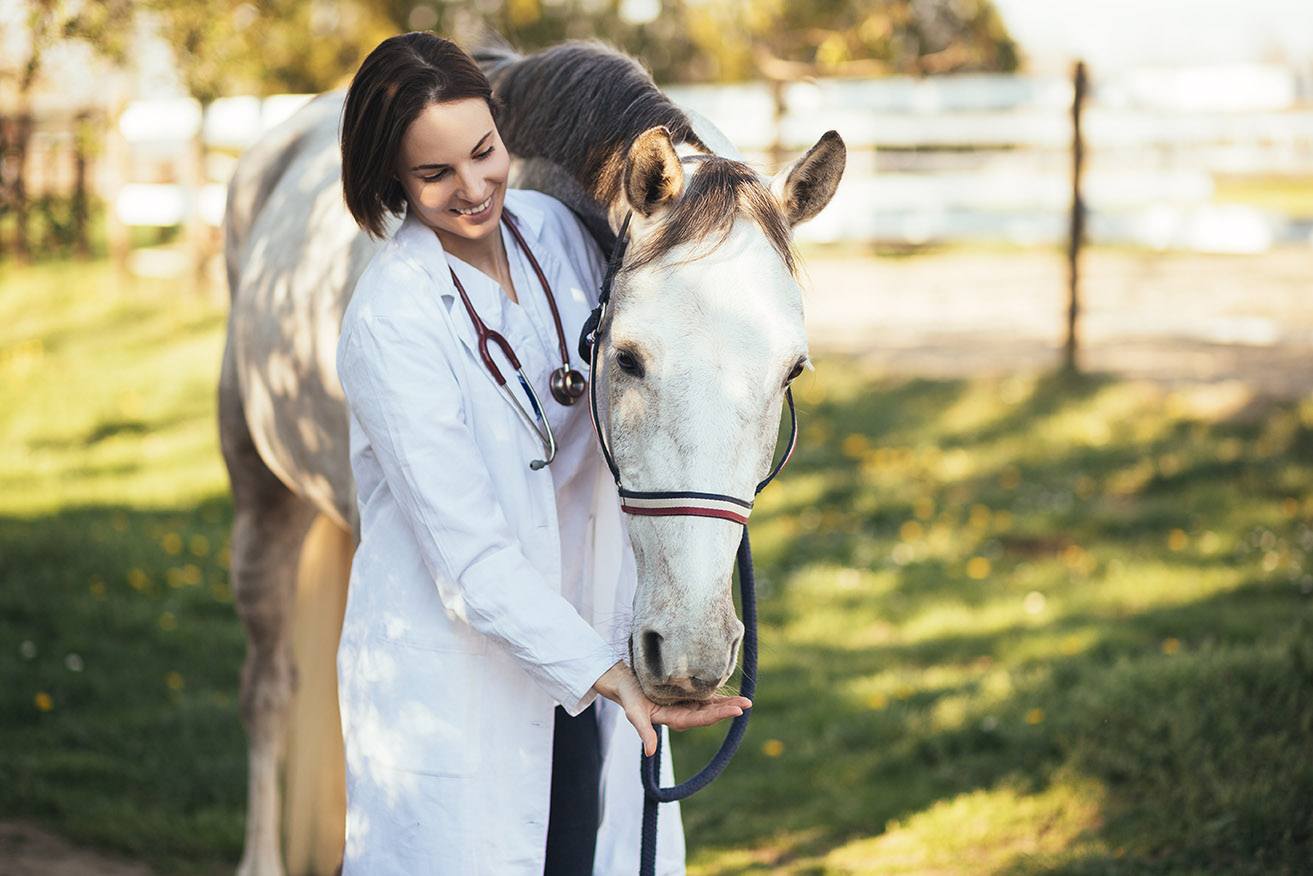
If you care about equines and dietary health, becoming an equine nutritionist specializing in equine diet would be a great option. Nutritionists narrow down diet plans for specific horses to make sure that animal is their healthiest possible.
As an equine nutritionist, you can expect to:
- Create diet plans
- Analyze nutritional value in feed
- Improve commercial diet recipes
- Provide dietary advice
- Recommend supplements and vitamins
- Work with companies to improve brands
The beauty of being an equine nutritionist is that there are so many avenues your career can go. Technically, you would be a scientist in your field that extensively studies the impact of diets on horses. Because of your research and expertise, you can provide your knowledge to improve care.
You can work with ranch, racetrack, or stable owners one-on-one to establish the needs of the hoses in their care. Or you can work for commercial or livestock companies that formulate recipes to manufacture. These jobs would focus less on direct interaction with horses and more on the technical side of things.
As an equine nutritionist, you will need to be timely, thorough, and efficient. You have to know all about each component that goes into a diet, learning how it affects the body. It takes very critical thinking, so if you’re logical and scheduled, you might love this job.
Working to improve the lives of your equine friends might be one of the most important jobs there is. Diet is one of the key factors in the overall success and performance of horses. All you need is to buckle down and obtain a degree.
Required Education: Bachelor’s in equine science or animal nutrition
Average Annual Salary: $60,000 to $80,000
7. Equine Veterinary Acupuncturist
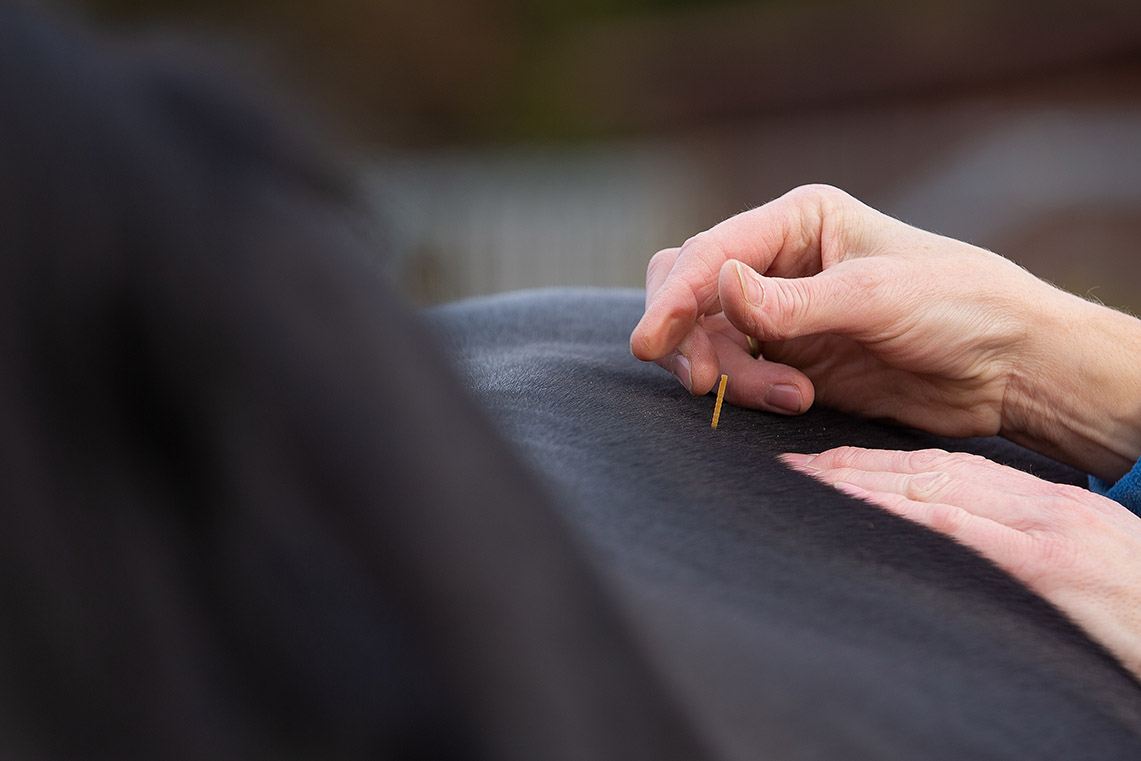
Horses work so hard for us—we know it’s true. As an equine veterinary acupuncturist, you can give back—knowing the horse is better off because of your care. Acupuncture is where small needles are inserted into the skin at particular points to create a correcting effect in the targeted area.
As an equine veterinary acupuncturist, your duties will include:
- Creating care plans for specific horses
- Learning extensively about target points
- Providing pain relief
- Treating symptoms of medical conditions
- Speaking with owners to discuss any problem areas
Essentially, you are a caretaker that soothes aches, pains, sprains, and strains. You will deal with many equine patients that have varying conditions that need relief. Needles help to alleviate pain in specific areas from illness or injury.
Surprisingly, acupuncture isn’t all about physical problems. It is also a useful tool to eliminate problems with allergies, seizures, digestive issues, and a myriad of other issues. Be prepared to learn a lot about an equine’s body and how acupuncture affects it.
You have to be a very precise person with a calming nature. Patience is key, as you have to learn to calm the animal and work on them accordingly. Building trust with each patient is a huge factor here, so knowing how to connect with horses is paramount.
The schooling isn’t too long to be a veterinary acupuncturist, so this might entice some people looking for an accelerated career path.
Required Education: Associates degree in acupuncture
Additional Courses: Acupuncture techniques, equine anatomy, muscle physiology
Average Annual Salary: $35,000 to $45,000
8. Equine Geneticist
If you are an equine geneticist, you will work with the science of pairing genes and analyzing their outcomes. This profession is advantageous in horse breeding for show or racing. You will mainly research the subject, studying how hereditary issues transmit through bloodlines.
As an equine geneticist, you will:
- Evaluate potential mating pairs
- Improve future bloodstock generations
- Gauge personality and behavior in sires and dams
- Assess progeny reports
- Write recommendation reports
- Interact with clients
Essentially, equine geneticists study horses both individually and on a large scale to improve future generations of breeds. Most of the time, you will work with Thoroughbred breeding industries to provide detailed recommendations on pairings.
You can work for a company, but most equine geneticists that practice pedigree analysis work on a freelance basis. You study the effects of linebreeding, inbreeding, hereditary traits, and successful performance.
You will work closely with horses in person, as well as in your own studies—so there’s a good combination of field and lab work. You should be a detail-oriented person with an ever-expanding knowledge base and willingness to learn.
You will need at least a bachelor’s degree in a related field and possibly complete internships.
Required Education: Bachelor’s degree in animal science, equine science, or biology
Additional Courses: Equine studies
Average Annual Salary: $55,000 to $75,000
9. Stunt Rider
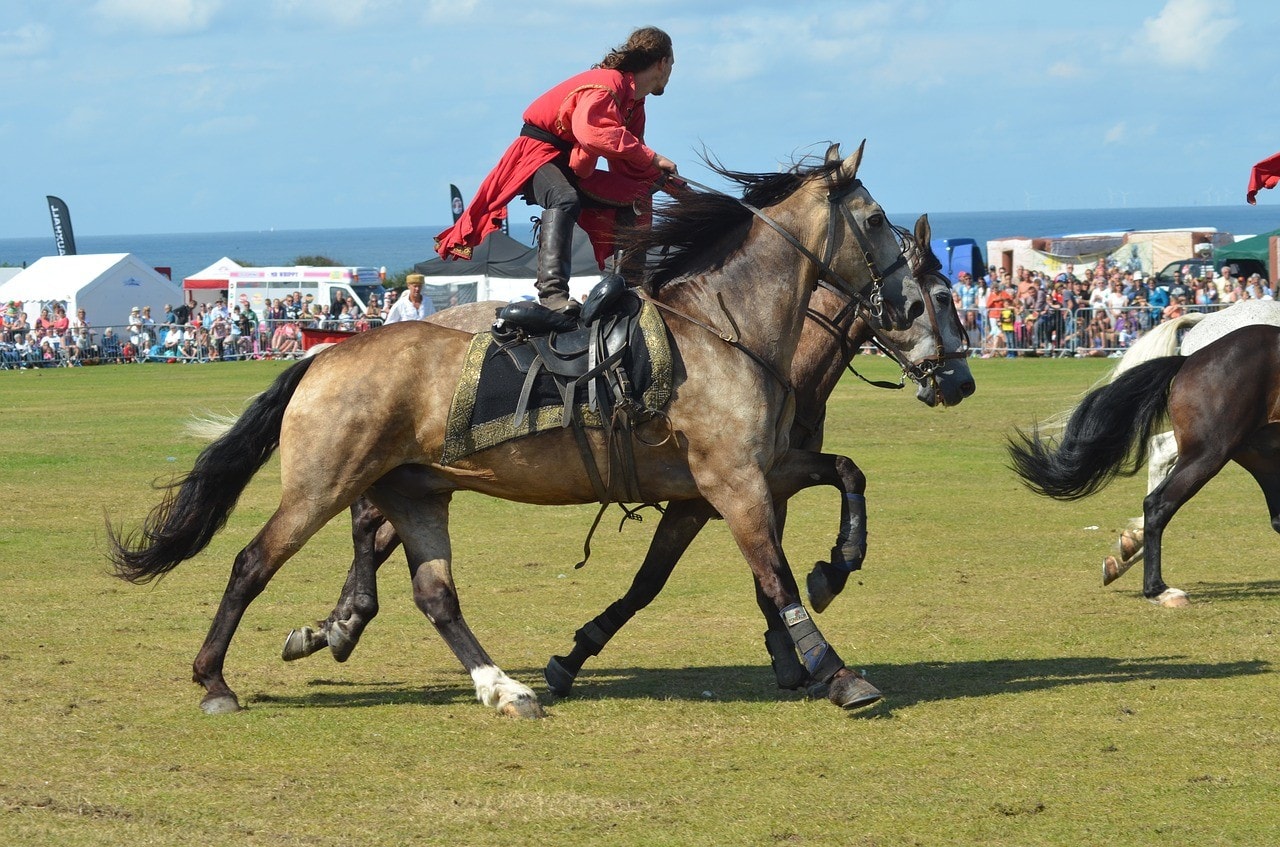
If you have grown up with extensive horse riding experience and have the heart of a thrill-seeker, think about stunt riding. You can perform all your fancy tricks and maneuvers in films, reenactments, and visual displays.
As a stunt rider, some of your tasks include:
- Training relentlessly
- Building trust with specific horse or horses
- Staying physically and mentally fit
- Being aware of present dangers
- Learning body language
- Performing choreography
- Executing successful stunts
- Finding gigs
While the most prominent images that come to mind with this profession involve popping out incredible stunts, that’s not all this is about. You have to work on perfecting your craft alongside your equine companion tirelessly.
You should learn one another’s body language and rhythmic movements to gauge how to work together. You must care for your horse with all general care on top of rigorous training regimens. Both you and your horse need to be in top physical shape at all times.
This job is extremely dangerous and requires years of dedication. You have to be willing to mold to fit what projects seek in stunt riders. You also have to have a special connection with your animal, as you are a team.
These jobs don’t require a degree, but you do need to have ever-evolving skills that perfect your craft.
Required Education: None, but extensive experience with horses is necessary
Additional Courses: None, hands-on experience
Average Annual Salary: $60,000 to $70,000
10. Mounted Policeman
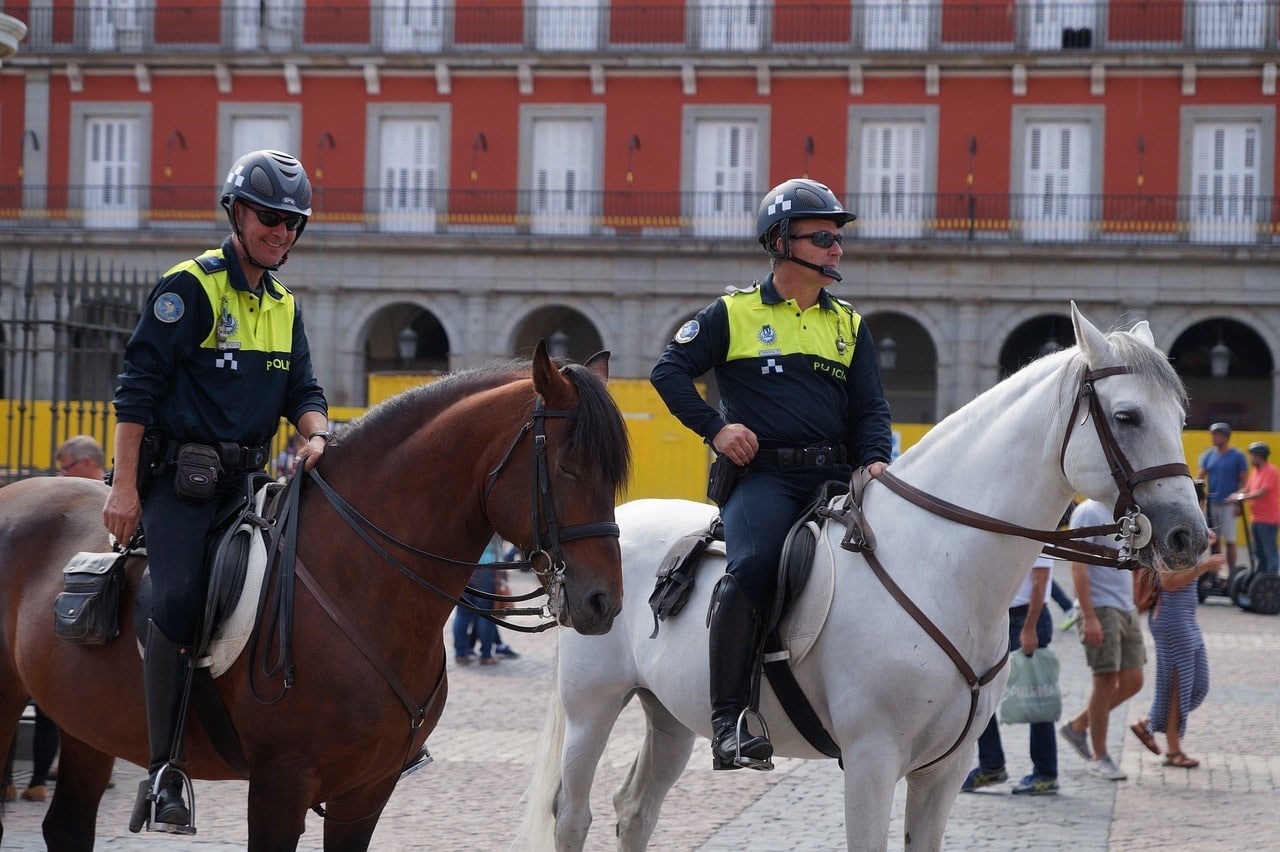
Mounted policemen uphold the law while relying on their equine partners for leverage and protection. You might have to relocate, as not all police forces have a mounted unit. So, always make sure to research how close you are to potential job opportunities.
As a mounted policeman, your duties include:
- Monitoring gatherings
- Maintaining crowd control
- Patrolling rough terrain
- Standard police work
- Public speaking
- Performing ceremonial duties
While horses are a huge part of the job, it isn’t the only aspect of the overall career. As a police officer, you are still responsible for regular police work when you’re off the saddle. Most mounted police oversee large events, providing order and high visibility.
You will develop a working relationship with your horse, maintaining a level of trust and respect. The horses are professionals in the field, too, after all. You will mainly work with large breeds like Thoroughbreds, draft horses, and quarter horses—most of which are geldings.
You and your horse might be in some pretty dangerous situations together. So, you must always keep a level head with the ability to work under pressure. Not only are you trying to control a crowd situation, but you are also responsible for your horse.
You are required to complete formal police training, passing all tests. Additional training for your division is a must afterward.
Required Education: Police training
Additional Courses: Equine management
Average Annual Salary: $65,000 to $70,000
11. Animal Abuse Investigator
If you’re passionate about equine wellbeing, you might be interested in becoming an animal abuse investigator. You can advocate for horses by protecting them or extracting them from harmful or neglectful situations.
As an animal abuse investigator, your work tasks involve:
- Learning laws of animal protection
- Keeping files on each offender
- Investigating situations of alleged abuse
- Assessing wounds from physical abuse
- Compartmentalizing abuse images professionally
Being an animal abuse investigator requires both a big heart and a strong stomach. You are going to see a lot of heartbreaking situations that can break your spirit. But if you can learn to compartmentalize these things mentally, you can be a compassionate but efficient worker.
You will carefully investigate claims of abuse and neglect to determine a route of action. You keep files and research based on your findings. You will follow up with potential and repeated offenders to make sure things are operating smoothly.
Though there is no official degree for animal abuse positions, criminal justice and animal science are great studies of interest.
Required Education: High school diploma, a degree in animal science or criminal justice
Additional Courses: None, volunteering/internships
Average Annual Salary: $50,000 to $60,000
12. Equestrian Illustration Artist
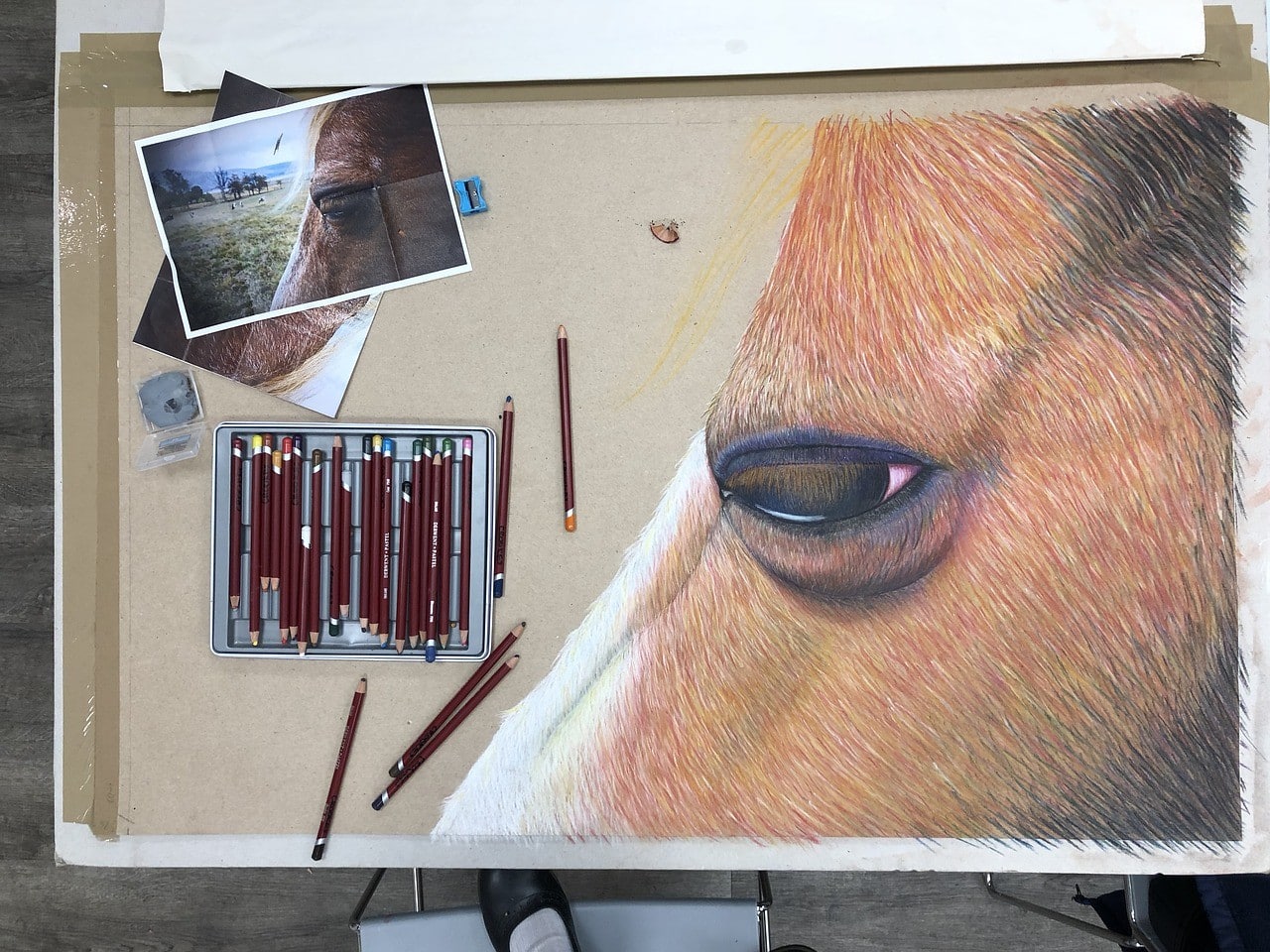
If you’re a person with an artist’s hand, maybe horse illustration is up your alley. Your clients will pay you to do a commission portrait in your style. You can offer your work online or in a gallery and work diligently to produce attractive works.
As a horse illustrator, you will:
- Make artwork for clients
- Paint horses on-site or through reference photos
- Market your artwork
- Attend art fairs, craft shows, and create an online presence
- Manage social media pages
- Attend workshops
- Offer services at fairs, shows, or races
Illustration work is incredibly creative, and all you really have to have is a natural talent. You can pair that with superb marketing skills and a social presence—and you can make a living from this. Many illustration artists are freelancers, so you can work for yourself.
If you have graphic design experience, you might also create logos for horse-related websites or advertisements.
Required Education: None, a degree in fine art, graphic design, or art-related field optional
Additional Courses: Art techniques
Average Annual Salary: $40,000 to $60,000
13. Photographer
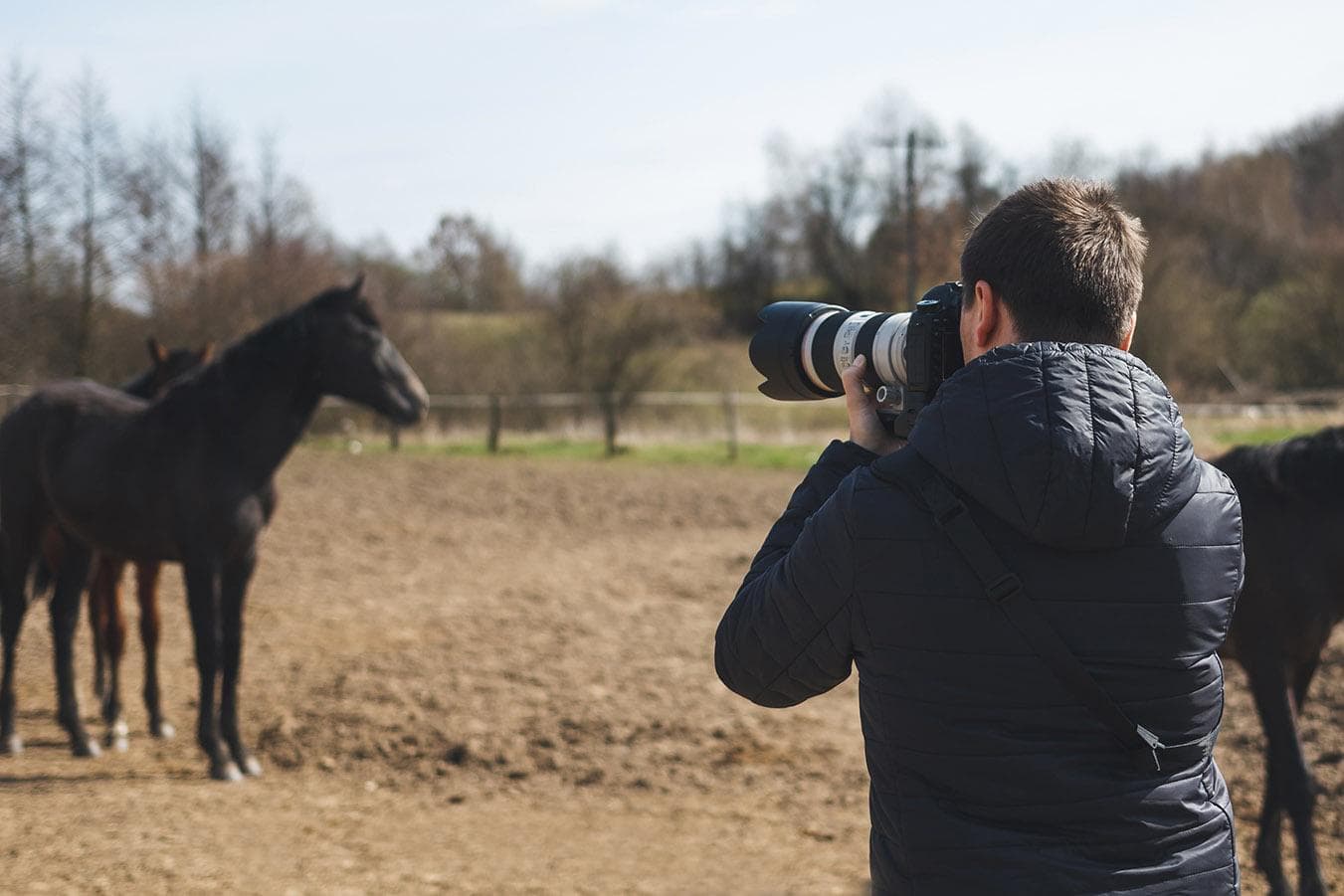
If you have a good eye and a camera, you could get into horse photography. You can take pictures for show horses, racehorses, or private owners. You can also photograph events, shows, and events for media or documentation.
As a horse photographer, you’ll have responsibilities like:
- Photograph horses in a variety of settings
- Create your own workload and schedule
- Take direction and follow orders from clients
- Work with horses for different poses
- Work with riders on their horses
- Collect funds and creating invoices
Photography can be a lucrative career that generates a lot of income. It could also be a hobby you have on the side. So, the reality is that it can be as big or small a part of your life as you wish.
If you photograph horses, you get to be up close and personal, creating networks with riders and equine professionals all over. You can gravitate toward some regions of equestrian activities.
As a photographer, you have to have a sense of aesthetics and know-how to work with computer software to edit photos as needed. You also have to be personable enough to work with clients or companies.
Required Education: High school diploma, associate or bachelor’s degree in photography optional
Additional Courses: Industry-related experience
Average Annual Salary: $20,000 to $75,000
14. Jockey

When you think of horse racing, seeing a jockey holding on across the track might come to mind. If you’re curious about what being a jockey is all about, these people are professionals with extensive training.
If you are a jockey, your tasks include:
- Handling horses on the track
- Following instructions from trainers
- Making it to the finish line
- Forming bonds with your horse
- Creating strategies to improve race performance
As a jockey, you will learn all of the riding techniques to make sure you are efficient on the saddle. You will take routine care of your horse and necessary supplies. You must also have a good working relationship with your companion.
You will spend several hours training for big events and races. This means rigorous practice and extreme discipline. You also have to learn how to use and maintain all riding equipment, including saddles, helmets, goggles, clothing, equestrian boots, and whips.
To be a jockey, you have to be a very driven person with a high activity level. Training requires incredibly meticulous work and discipline. Performance on the track is everything—and the more time you spend training, the more your skills reflect it.
There is no degree required to be a jockey. However, there will be apprenticeships and other instruction that is necessary to fulfill your job.
Required Education: None
Additional Courses: Apprenticeships
Average Annual Salary: $30,000 to $40,000

Final Thoughts
Working with horses is a genuine possibility, regardless of education. However, gaining knowledge about equines is always a valuable way to enhance your skill set, no matter what you choose. There are so many more options out there than you might first imagine.
With a bit of narrowing down, you could have your dream career. All it takes is a little focus and determination to be around lovely, sensitive, extraordinary equines every day.
Featured Image Credit: olsim photo, Shutterstock
Ashley Bates is a freelance dog writer and pet enthusiast who is currently studying the art of animal therapy. A mother to four human children— and 23 furry and feathery kids, too – Ashley volunteers at local shelters, advocates for animal well-being, and rescues every creature she finds. Her mission is to create awareness, education, and entertainment about pets to prevent homelessness. Her specialties are cats and dogs.

